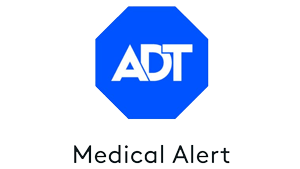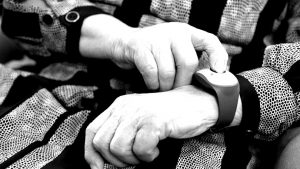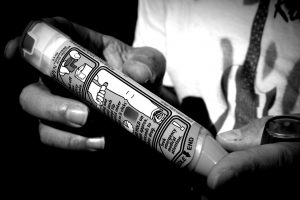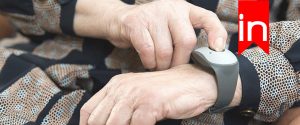In the United States, three exceptional companies have emerged as leaders in the medical alert system industry: Life Call, ADT Medical Alert, and Mobile Help. These companies prioritize the safety and well-being of individuals, especially those who are elderly or have medical conditions.
Life Call, known for its reliability and exceptional customer support, offers user-friendly devices and fast response times. ADT Medical Alert, a subsidiary of ADT, brings its expertise in security to the medical alert system market, providing customizable solutions and advanced monitoring centers. Mobile Help, known for its cutting-edge technology and outstanding customer service, offers both home-based and mobile solutions, ensuring assistance is always within reach.
Last Updated: January 20, 2025
At A Glance: Best Medical Alert Systems

#1

- Since 1974, LifeCall is an American company with a long history of providing excellent monitoring services and efficient emergency alert systems to health care facilities catering to the elderly and individuals for use both indoors and on the go all over the United States.
#2

- LifeFone provides dependable medical alert systems designed to enhance safety and independence for seniors. With 24/7 emergency monitoring, users can easily connect to trained professionals in case of falls, accidents, or other emergencies. LifeFone offers both at-home and on-the-go options, ensuring seniors receive help quickly whenever they need it.
#3

- Alert1 Medical Alert Systems delivers emergency response solutions for seniors, focusing on independence and safety. Their wearable devices, available for home and mobile use, connect users to 24/7 monitoring centers staffed by trained responders. With straightforward operation, Alert1 provides peace of mind for seniors and their families during unexpected situations.
#4

- MobileHelp offers versatile medical alert systems with GPS-enabled devices for both home and mobile use, connecting users to 24/7 emergency monitoring services. Designed for active seniors, MobileHelp’s solutions provide safety and support on the go, ensuring help is accessible anytime, anywhere through easy-to-use wearable devices.
Medical Alert Systems Comparisons & Reviews
Medical Alert Systems Reviews


ADT Medical Alert provides efficient and reliable Medical Alarm System Monitoring that provides help quickly and efficiently when you need it.




MobileHelp is America’s premier mobile medical alert system that is ranked No.1 on many trusted medical alert review sites.

Philips Lifeline offers medical alert systems that allow you to maintain your lifestyle and have access to help 24×7. The medical alert products of Philips Lifeline are solutions that you can depend on.

The company has more than 30 years of experience in medical alarms and monitoring services and is dedicated to offering independence and peace of mind to seniors living alone and their family, compassionately and reliably.
Medical Alert Comparison Chart
Let’s compare:
- In Home Medical Alert System – Pricing
- Mobile Medical Alert System – Pricing
- Products
- Monitoring Services
- In-Home System Equipment
- In-Home System Phone Lines
- Optional Add-Ons and Additional Monitoring
In Home Medical Alert System – Pricing
- Monthly Cost
- Start-Up Fees
- Long-Term Contract
- From $29.95
- None
- None
- From $29.95
- None
- None
- From $29.95
- None
- None
- From $19.95
- $49.95 One Time Fee/
Waived, For Annual Payment Plan - None
- From $19.95
- None
- None
- From $19.95
- None
- None
- From $49.95
- $96 to $200
- 3 Years
- From $29.95
- None
- None
- From $29.95
- From $50.00 One Time Fee
- None
Mobile Medical Alert System – Pricing
- Monthly Cost
- Start-Up Fees
- Long-Term Contract
- From $29.95
- None
- None
- From $29.95
- None
- None
- From $29.95
- None
- None
- From $19.95
- $49.95 One Time Fee/
Waived, For Annual Payment Plan - None
- From $19.95
- None
- None
- From $19.95
- None
- None
- From $49.95
- $96 to $200
- 3 Years
- From $29.95
- None
- None
- From $29.95
- From $50.00 One Time Fee
- None
Products
- Landline Home System
- Mobile or WiFi Home System
- Mobile System with GPS
- Fall Detection
- Wearable Smart Technology
Monitoring Services
- 24/7 Monitoring
- Monitoring Location
- Monitoring Center Standards
- In-house
US Based - UL Listed
TMA Five Diamond Certified
- Outsourced
US Based - UL Listed
TMA Five Diamond Certified
- Outsourced
US Based - UL Listed
TMA Five Diamond Certified
- Outsourced
US Based - UL Listed
SIA Certified
- Outsourced
US Based - UL Listed
TMA Five Diamond Certified
- Outsourced
US Based - UL Listed
TMA Five Diamond Certified
- In-house
US Based - UL Listed
TMA Five Diamond Certified
- In-house
Outsourced
US Based - Self-managed Standards
- In-house
US Based - Self-Managed Standards
In-Home System Equipment
- Base Unit With Sensitive Microphone
- Water Resistant Button
- Button Battery Life
- Base Unit Backup Battery
- Wireless Range
- Optional Neck Pendant
- Optional Wristband
- 4 years
- 32 hours
- 1,000 ft
- --
- --
- --
- 3 - 5 years
- 32 Hours
- 1,300 ft
- 5 years
- 30 hours
- 600 ft
- 3 - 5 years
- 24 hours
- 600 ft
- 5 years
- 32 hours
- 1,000 ft
- 7 years
- 72 hours
- 800 ft
- 3 - 4 years
- 32 hours
- 1,300 ft
- 5 years
- 30 hours
- 800 ft
In-Home System Phone Lines
- Traditional Land Line
- Voice Over Internet (VoIP)
- Cellular Mobile Connection
- Cellular Network Provider
- AT&T
- AT&T
- AT&T
- AT&T
Verizon
- AT&T
- AT&T
Verizon
- AT&T
Verizon
Optional Add-Ons and Additional Monitoring
- Mobile Medical Alert
- Auto Fall Detection Alert
- Wall Mounted Button
- Fire & Smoke Monitoring
- Carbon Monoxide Monitoring
- Key Lockbox
Understanding Medical Alert Systems: A Buyer's Guide
Your guide to understanding what are medical alert systems, how they work and who they are for.
Quick Links
What Are Home-Based Medical Alert Systems?
Up until a problem happens, lots of individuals wait before getting a medical alert ID system and service. There are some still declining to get one, even after an incident occurred, and often struggle with the same trauma again, without any assistance. This is when medical alert instruments are needed and provide assistance to those who have serious medical problems or allergies or who are at risk of falling. Medical Alert Equipment are the best reward you can give yourself or a loved one to save their life within minutes.
Appropriate diagnosis is vital for effectual therapy. In case of an emergency, misdiagnosing medical problems can unintentionally occur. In such an event, it is necessary to get the aid from a first responder by short listing the vital health info onto a medical ID alert unit. According to research studies, emergency medical responders (EMS), and also clinical individuals such as doctors and nurses, will look for your medical alert Id Badge in advance to presenting a diagnosis. This saves valuable time and chances of being misdiagnosis is minimal. Medical alerts has in fact helped reduce trips to hospitals, eliminate preventable health center admissions and most importantly has been reliable in saving lives.
Medical alert units are offered in various forms such fashionable bracelets, necklaces, pendants and medallions, sports bands and watches.
Seniors who are prone to multiple health challenges, physically disabled, or individuals with illnesses or disorders, like heart attacks, strokes, allergic reactions, pulmonary problems, asthma, hearing or vision problems and various other such diseases ought to have a medical alert device with them at all times.
A medical alert generally have info of drugs being consumed, any kind of allergic reactions a person has, physical or psychological disorders and a contact number for emergency situation contact. A medical alert would display as :
Jon Doe (your full name)
Compulsive overeater
Insulin dep. diabetic (insulin-dependent diabetes)
Call 000-000-0000
How Medical Alert Systems Work
A medical alert device is a technique whereby you can alert your nearest medical professionals. Different medical alert devices work in different ways. Some alarms may be networked via GPS, some others may be attached to a nexus in your house, and even some other may be attached to your mobile phone.
The alarm system is commonly in a tool which can be worn around your neck or can be worn as a wristlet around your arm. There are two primary types of medical alert devices ― monitored and non-monitored.
1. Monitored Medical Alert Devices
A monitored medical alert device is one that allows you to communicate to a live expert once you press the alert button. Typically, it is attached to a terminal in your home which in turn allows the device to contact the nearest emergency contact. On this phone number, a qualified first -responder is going to have the capacity to speak to you, assess the condition and also get in touch with an appropriate person with a two-way intercom. Depending on how the first responder evaluates the condition, they may contact a neighbour or an emergency contact you may have provided. They can also have an ambulance, a police officer or a fire department sent off.
Several of the newer designs do not even need a home base device and can be attached to your smartphone. If not, you will likely require to be in the vicinity of your home base system to make use of two-way communicating. Medical alert devices usually also have a fall warning. There may circumstances where you have slipped and can not reach the unit without causing yourself pain or have passed out. The system is able to determine the situation and alert the monitoring service provider, which will contact emergency medical services after attempting to get in touch with you to confirm if you are okay.
2. Non-Monitored Medical Alert Devices
A non-monitored medical alert device is configured similarly, but rather than getting you on the phone with a live individual, the system calls the pre-programmed phone numbers you have provided into your network directory. You can curate the directory based on your own comfort. It may be a member of the family, a neighbour or you can even put phone numbers of emergency services in the directory. Immediately after you push the button on your medical alert device, a signal is sent to your home base or whichever method of connecting the device abides by.
With some devices, you can speak to the person the system has put a call to. In other instances, a pre-recorded message is sent to the people, allowing them to know that there is a medical emergency. Non-monitored devices also have fall detection. The system calls the contact list you have supplied as soon as it detects that you have actually slipped.
Types Of Medical Alert Systems
1. In-Home Protection
In-Home Protection means a medical alert system with no landline telephone requirements, the at-home medical alert system is an across the country mobile network that wirelessly attaches to you with 24/7 surveillance security. The easy-to-install base terminal is controlled with a wearable emergency button that, when pressed within 600 feet of the base terminal will give you prompt assistance and communication.
- No landline telephone requirements, wirelessly attaches to you
- Easy-to-install base terminal
- Wearable emergency button Works within 600 feet of the base terminal by pressing the button
- Links you to 24/7 monitoring center with an across the country cellular network
2. Away Protection
Away Protection means a personal emergency response action system with integrated GPS, the system.
- Continuously protects you both at home and also on-the-go
- Lightweight, as well as portable, wearable medical alert system
- Works within 350 feet of the base by pressing the button
- Links you to 24/7 monitoring center with an across the country cellular network
3. On-The-Go Protection For Active Seniors
On-The-Go Protection for Active Seniors means a portable medical alert device with both GPS and WiFi advanced location technologies.
- Provides the most amount of protection at home and on-the-go
- Longest battery life of any mobile system
- Lightweight alert device
- Links you to 24/7 monitoring center with an across the country cellular network
- Works with accurate fall alert technology — get help when you need it the most
Fall Detection Enhanced Systems
What is fall detection, and do I need it?
A Fall Detection-enhanced device will automatically call for support should you experience a fall, even if you are unable to push your medical alert button. Our expert specialists generally encourage fall detection to those with health problems like epilepsy, Parkinson’s disease, dementia, diabetes, and MS, or for those who simply want an extra layer of security.
Fall Detection does not detect 100% of falls. If you are capable, you should press the assistance button in the event of an emergency. The 911 emergency services line is an alternative to the System and the Services. Fall Detection needs to be used around the neck to allow for appropriate detection of falls.
How Does Fall Detection Work?
Fall Detected
Your fall detection pendants automatically notify a 24/7 Command Center when a fall is sensed.
Connect
A trained operator from the Command Center quickly comes on the line and asks if you need help.
Help Is On The Way
Command Center will pinpoint your location and send you help. Operators will stay on the line with you until help has arrived.
Who Should Wear A Medical Alert System?
1 out of every 3 Americans has a medical problem, or takes a medication, that EMS and medical specialists need to find out about in an urgent situation. If you live with one or more of the following, please get a medical alert console protection today. It can make a difference in an emergency.
You should get a Medical Alert Device, if you or your loved one has any of the following medical conditions:

- ADD/ADHD
- Alzheimer’s disease and other dementias
- Anemia
- Asthma
- Autism
- Blood disorders
- Blood thinners (Coumadin Warfarin)
- Cancer
- Children with special needs
- COPD
- Diabetes
- Dialysis
- Epilepsy and other forms of seizures
- Heart disease
- Hypertension
- Hypothermia
- Lung disease
- Multiple Scleros
- Pacemaker
- Stroke risks

- Animals
- Bee stings
- Latex
- Nuts
- Penicillin
- Sulfa drugs
- Drug allergies
- Food Allergies

- Beta blockers
- Blood thinners
- Chemotherapy
- Immunosuppressants
- Insulin
- Monoamine Oxidase Inhibitors (MAOIs)

- Artificial heart valve
- Cochlear implant
- Hearing aid
- Insulin pump
- Pacemaker
- Stents, shunts, pins
Are You A Parent Or Caregiver?
Caregiving is among the absolute most essential and challenging roles. A medical alert service provider near you wants to help. If you care for a person with a clinical health condition, rest assured that a medical alert equipment will enable law enforcement, paramedics and other emergency responders to identify your loved one’s condition if you can’t be there for them. Ask for the “Family Notification Service” and you will be alerted immediately of your loved one’s condition and location in any emergency.
Medical alert systems is also perfect for making certain the safety of those living with Alzheimer’s, autism or other cognitive health conditions.
Do You Need A Medical Alert System? Take The Quiz.
Questions to ask yourself:
- Is your Medical Alert device in good condition? Is the details still quick and easy to review?
- Has your medical health condition or prescription medication changed?
- Would you benefit from a back up medical alert system?
- How much can you afford on a monthly basis?
Does your medical Information need updating:
A correct clinical profile is essential. update our health care profile with us right away if:
- Your medical problem has changed
- You are seeing a new physician or medical specialist
- Your emergency contact or their telephone number has changed. (You should review the current information for accuracy ).
- You utilize an EpiPen® , but it is not shown in your current profile.
- Your special needs requests have changed.

Navigating Coverage with Personalized Support With Connie Health Medicare

Enhanced Safety and Peace of Mind With The Benefits of Vivint Security For Seniors

MAMA Medical Alert Monitoring Association: Ensuring Elderly Safety Nationwide

Medical Alert Bracelet For Breast Cancer Patients: Essential Information for Emergencies

Medical Alert Watch With No Monthly Fee

Why Seniors Living At Home Need a Medical Alert System